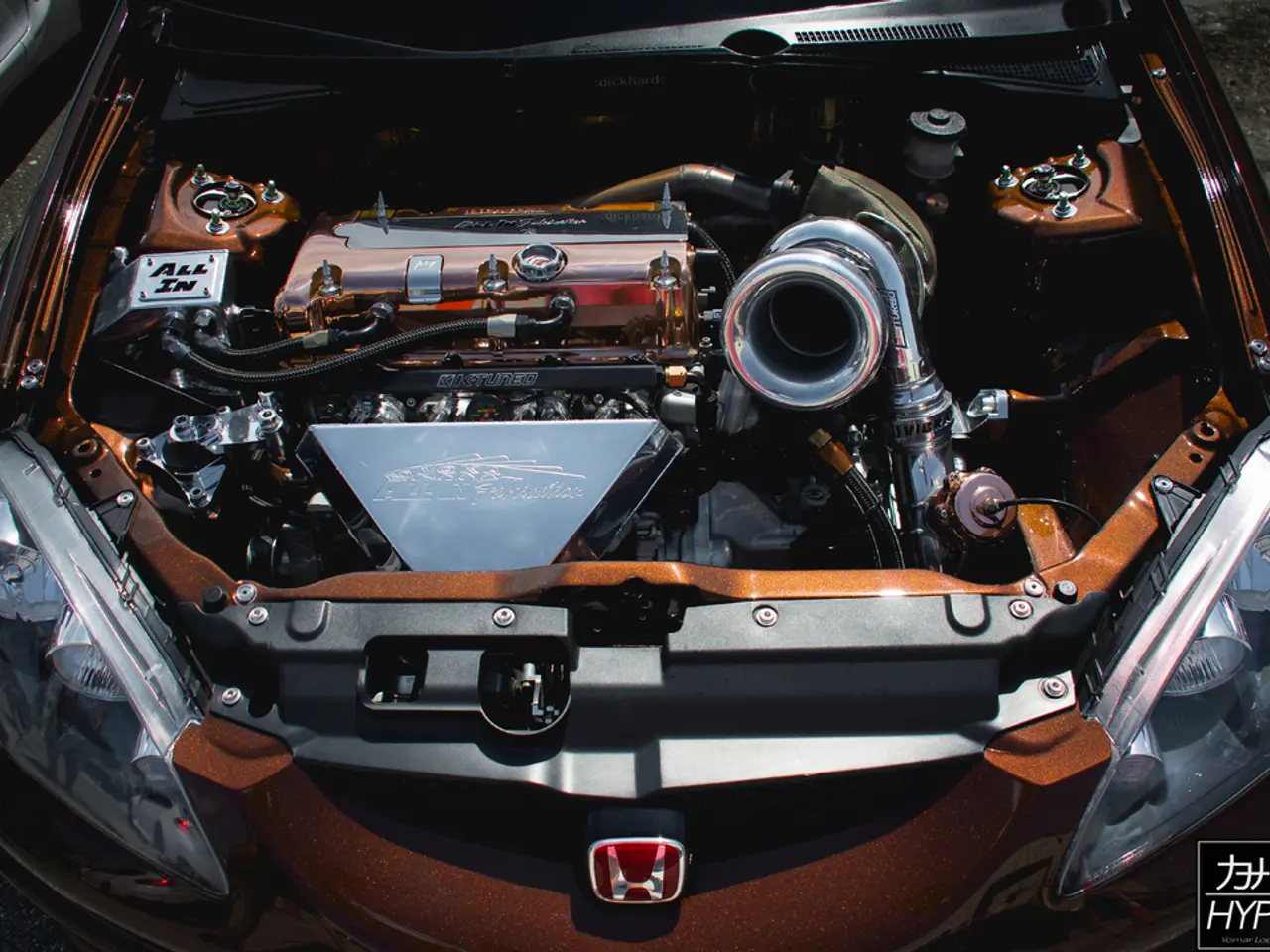Porsche's Chief Executive seeks to maintain grip on the Flame
In a surprising move, Porsche, the renowned German automotive manufacturer, has announced a strategic pivot in its approach to electrification. The company is moving away from an all-electric focus and will instead adopt a balanced portfolio that includes internal combustion engines (ICE), hybrids, and electric vehicles (EVs).
This strategic shift comes in response to the lower-than-expected demand for electric vehicles and the challenges faced by the German automotive industry, which continues to grapple with increasing sales figures and losses.
Porsche's initial plan was to lead in electric drive technology, aiming for a fully electric brand. However, the company has recognised that relying solely on electric motors is not yet a viable option on the global market.
The new strategy is expected to ensure long-term stability and growth for Porsche. The CEO, who has expressed a desire to stick with the internal combustion engine, announced this change in strategy at a recent press conference.
Key elements of Porsche's updated strategy include slowing down the rollout of EVs, continued development of high-performance electric models, sustained commitment to gas-powered cars and hybrids, and financial and operational restructuring.
Porsche will continue to invest in high-performance electric models like the Taycan and upcoming fully electric Cayenne and 718 EVs. However, the company will also focus on luxury and performance niches where it has a competitive advantage.
Sustained commitment to gas-powered cars and hybrids is essential for brand enthusiasts and improves overall flexibility amid uneven EV adoption globally. Financial and operational restructuring, including labor cost management and strategic realignment of product portfolios, aims to strengthen profitability and resilience despite a tougher global environment.
The success of the upcoming SUV with an internal combustion engine remains uncertain. Despite the challenges, Porsche considers internal combustion engine technology as still profitable and will continue to invest in it for both SUVs and the Taycan and the 911.
In summary, Porsche is rebalancing its electrification efforts to combine ICE, hybrid, and EV technologies, moving away from an all-in electric model due to market realities and profitability pressures, while still expanding its high-performance EV lineup as a complement rather than a replacement for traditional engines.
[1] Reuters. (2022). Porsche to slow Taycan rollout, focus on profits amid challenging market. Retrieved from https://www.reuters.com/business/autos-transportation/porsche-slow-taycan-rollout-focus-profits-amid-challenging-market-2022-03-03/
[2] Autocar. (2022). Porsche to slow down EV rollout, focus on profits amid challenging market. Retrieved from https://www.autocar.co.uk/car-news/new-cars/porsche-slow-down-ev-rollout-focus-profits-amid-challenging-market
[3] Car and Driver. (2022). Porsche Slows Down Electric Vehicle Rollout, Focuses on Profits. Retrieved from https://www.caranddriver.com/news/a37525181/porsche-slows-down-electric-vehicle-rollout-focuses-on-profits/
[4] Motor1. (2022). Porsche Slows Down EV Rollout, Focuses on Profits. Retrieved from https://www.motor1.com/news/461374/porsche-slows-down-ev-rollout-focuses-on-profits/
[5] Bloomberg. (2022). Porsche Slows Down Electric Vehicle Rollout, Focuses on Profits. Retrieved from https://www.bloomberg.com/news/articles/2022-03-03/porsche-slows-down-electric-vehicle-rollout-focuses-on-profits
- Porsche's updated strategy includes a shift in focus from solely electric vehicles (EVs) to a balanced portfolio that also includes internal combustion engines (ICE) and hybrids, demonstrating an economic and social policy aiming for long-term stability and growth amid global market challenges.
- As part of this strategic adjustment, Porsche will continue investing in high-performance electric models like the Taycan, while also prioritizing technology advancements and operational restructuring, including labor cost management and strategic realignment of product portfolios, to ensure profitability and resilience in the evolving automotive industry.




